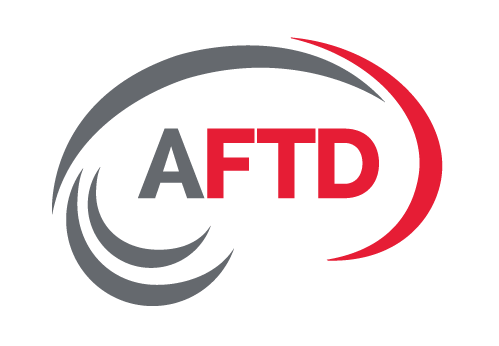We are excited to announce the grant recipients of this cycle’s Target ALS Basic Biology Consortia Grant Program focused on understanding the fundamental biology of sporadic ALS. Target ALS aims to support research that will identify novel drug targets and biomarkers for ALS based on a deep understanding of the biology of this disease. For this funding cycle, we we had 106 scientists from 76 institutions in 13 countries apply, and six consortia were awarded funding.
Key Objectives of the Basic Biology Consortia Program
The Target ALS Basic Biology Consortia Program aims to:
- Gain a deeper understanding of the biology of sporadic form of ALS
- Foster collaborative research that brings together scientists with complementary expertise.
- Encourage application of new technologies to understanding the biology of ALS.
- Engage scientists from outside the ALS research community to participate in collaborative consortia.
- Identify new drug targets for sporadic ALS..
This funding cycle’s Basic Biology Consortia Grant Program specifically focused on sporadic ALS, which comprises 90% of ALS cases where there is no family history of the disease. While the field has seen the first therapies become available for people living with familial ALS, which makes up the remaining 10% of cases where an inherited genetic mutation or family history is present, not as much progress has been made for sporadic ALS. It is critical to better understand the underlying biology of ALS to develop treatment options for all people living with this disease.
About our Review Process
At Target ALS, we hold fairness and transparency paramount in our review process. The Target ALS Independent Review Committee (IRC) makes all research funding decisions without involvement from the organization’s staff or leadership, ensuring every application receives a fair evaluation. The IRC is comprised of experts across scientific disciplines from both industry and academia, reflecting the evolving nature of ALS research. To avoid any possible conflicts of interest, no member of the IRC can apply for or receive Target ALS funding for their own work. Members on the IRC abide by a comprehensive conflict of interest policy and are all under confidentiality agreements.
For more detailed information about the grants and the application process, please visit our Basic Biology Consortia Page.
2024 Basic Biology Consortia Grantees:
Project Title: A Nucleolin/Importin Axonal Axis in ALS
Researchers: Professor Eran Perlson (Tel-Aviv University), Dr. Amir Dori (Sheba Medical Center, Tel-Hashomer), Professor Mike Fainzilber (Weizmann Institute of Science), Dr. Zevik Melamed (Hebrew University of Jerusalem)
Project Summary: This project explores biology in motor neurons, the cells that are affected by ALS. Specifically, these researchers are studying the motor neuron axon, the long part of the cell that carries information from the spinal cord to the muscle In 97% of ALS cases, a protein called TDP-43 aggregates and is mislocalized in cells, impacting their function. This consortium asks how TDP-43 and alterations in a pathway critical to axon repair might intersect and cause ALS. The group will study how the protein and pathway interact using gene-edited mice and human motor neuron models, with complementary analyses in ALS patient tissues. Understanding the biology of axons has significant potential to identify new avenues for treating sporadic ALS.
Project Title: Deep FUS: Stratifying sALS Along the FUS Axis Using Multimodal Profiling
Researchers: Dr. Steven Altschuler (University of California, San Francisco), Dr. Stormy Chamberlain (F. Hoffmann-La Roche Ltd), Dr. Cathy Lomen-Hoerth (University of California, San Francisco), Dr. Sally Temple (Neural Stem Cell Institute), Dr. Lani Wu (University of California, San Francisco)
Project Summary: This consortium recently found that some sporadic ALS patients may share disease signatures with familial ALS patients who have a mutation in the FUS gene. The researchers will leverage machine learning to understand disease signatures in FUS ALS and FUS-like sporadic ALS to predict if some sporadic ALS patients might benefit from precision medicines originally designed for other patients.
Project Title: Investigating Glial-Immune Crosstalk in Modulating Sporadic ALS Survival
Researchers: Dr. Jack Humphrey (Icahn School of Medicine at Mount Sinai), Dr. Philip Hasel (University of Edinburgh), Professor Andrea Malaspina and Professor Rickie Patani (The Francis Crick Institute, UCL)
Project Summary: ALS affects not only motor neurons but also other cells like glia and immune cells that support and protect neurons. This project will investigate how these supporting cells interact and influence how long ALS patients survive. By studying both tissues from deceased patients and blood samples from living patients, the researchers aim to develop new treatments that slow the progression of sporadic ALS.
Project Title: Mechanisms of Glial-Associated TDP-43 Pathology and Contributions to Neurodegeneration
Researchers: Dr. Rita Sattler (Barrow Neurological Institute), Dr. Yuna Ayala (St. Louis University), Dr. Christopher Donnelly (University of Pittsburgh), Dr. Patrick Pirrotte (Translational Genomics Research Institute), Dr. Kendall Van Keuren-Jensen (National Institute on Aging)
Project Summary: In 97% of ALS cases, a protein called TDP-43 moves from its normal place in the nucleus of cells to the cytoplasm, where it aggregates and affects cell function. Typically, this pathology is studied in neurons. However, this project focuses on TDP-43 pathology in glia, the non-neuronal support cells in the brain. By understanding how TDP-43 dysfunction in glia contributes to ALS, this consortium hopes to find new ways to treat the disease that can be applied to the 97% of cases where TDP-43 is affected.
Project Title: SISMIC-TDP-43: Structure-Based Identification of Small Molecules Interacting with and Counteracting TDP-43 Aggregation
Researchers: Dr. Morwena Latouche (Paris Brain Institute), Dr. Emanuele Buratti (International Centre for Genetic Engineering & Biotechnology), Dr. Jean-Christophe Cintrat (Commissariat à l’énergie Atomique et aux Énergies Alternatives), Dr. Olivier Sperandio (Institut Pasteur)
Project Summary: In 97% of ALS cases, the protein TDP-43 clumps together, or aggregates. This project aims to find small molecules that can bind to these TDP-43 aggregates and counteract its harmful accumulation in nerve cells. The researchers will use advanced AI technologies to identify compounds with potential to serve as new therapeutics or diagnostic biomarkers for sporadic ALS. .
Project Title: Neuronal Innate Immune Pathways That Drive Cell Death and Inflammation in ALS
Researchers: Dr. Mark Albers, Dr. Clotilde Lagier-Tourenne, Dr. Brian Wainger (Massachusetts General Hospital), Dr. Isaac Chiu (Harvard University)
Project Summary: Inflammation is a key feature of both sporadic and familial ALS, but its exact role in the disease is unclear. This project will study two specific immune pathways in neurons to understand how they might work together to contribute to cell death and ALS progression. The findings could lead to new treatments that target these pathways to slow or stop the disease.
Our Vision and Commitment
At Target ALS, our vision is to realize a world where everyone lives. We are driven by a sense of urgency, knowing that every day counts for people diagnosed with ALS. Currently, there are no treatments on the market that promise to make sporadic ALS a manageable disease. We are committed to funding cutting-edge research and fostering collaborations that will bring us closer to effective treatments for all forms of ALS.
Together, we continue to strive for a future where ALS is no longer a life-threatening diagnosis. Thank you to all the applicants for their dedication and hard work. For more detailed information about our grants and the application process, please visit our Basic Biology Consortia Page.





